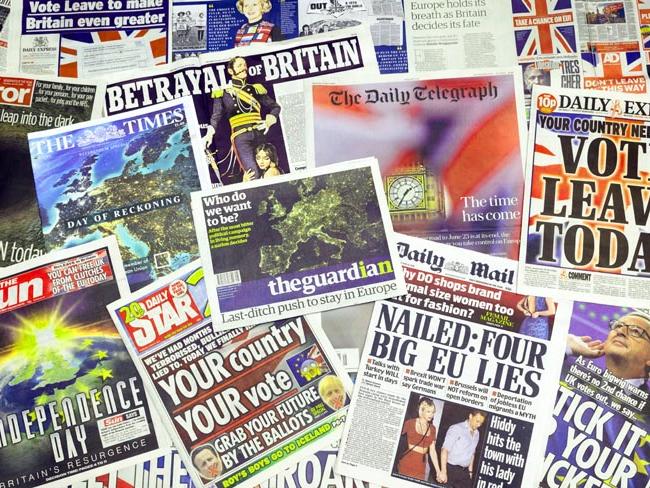
23 June 2015: headlines from the day. Photo Lenscap Photography/shutterstock.com
23 June marked four long years since the people of Britain voted to leave the European Union. “The British people have spoken, and the answer is, we’re out,” said the BBC’s David Dimbleby at 4.40 am after a long night of magnificent results.
Yet we’re not out, not really. Instead, we’re stuck in round after round of negotiations, bogged down in a transition that entrenched interests are seeking to turn into a cul-de-sac.
But matters are coming to a head. The EU wants the UK to ask for an extension to the transition. And you can see why they want us to. However much the French and German governments see the British people generally as an unwelcome irritant, they need our money, and they need our markets.
In 2018 – the last year for which there are final figures – Britain had a balance of payments deficit of £66 billion with the EU. (Compare that with a balance of payments surplus with the rest of the world of £77 billion.) Bear that in mind when EU negotiator Michel Barnier talks about a “level playing field”.
They are desperate about money. The EU is heading into its new Multiannual Financial Framework (MFF) covering the next seven years and due to start on 1 January – without a clue of how much money it will need, only that it will need a lot.
The current pitch from the European Commission shows both the scale of its ambition and the depths of its difficulties.
First, it wants member states to agree to its borrowing €750 billion on the currency markets to finance (mostly) a Covid-19 recovery fund to be doled out by the Commission.
But several countries are dead set against the EU taking on that level of mutual debt, while others want grants (which the recipients won’t have to repay) to be double that.
Second, it wants to wade into other countries’ health policies on a massive scale, upping its health budget from an original proposal of €413 million to €9.4 billion – a 20-fold increase.
The Commission has no idea what the eventual outcome will be. Brussels is pinning its hopes on Germany, which takes over the six-month rotating chairmanship of the European Council on 1 July, being able to strongarm the rest of the EU. Even Germany may find this difficult.
Amid the chaos, the one clear fact – the only clear one – is that an extension to the transition would be a leap in the dark. There is no way that the UK would or could know what it would be letting itself in for.
Four years, and still no final agreement. If agreement with the EU were possible, it would have taken place already. No transition extension! Walk away, as we should have done four years ago. Let’s get on with the tasks that face us as an independent country at last.
On to sovereignty! On to independence!
• A longer version of this article is on the web at www.cpbml.org.uk.
